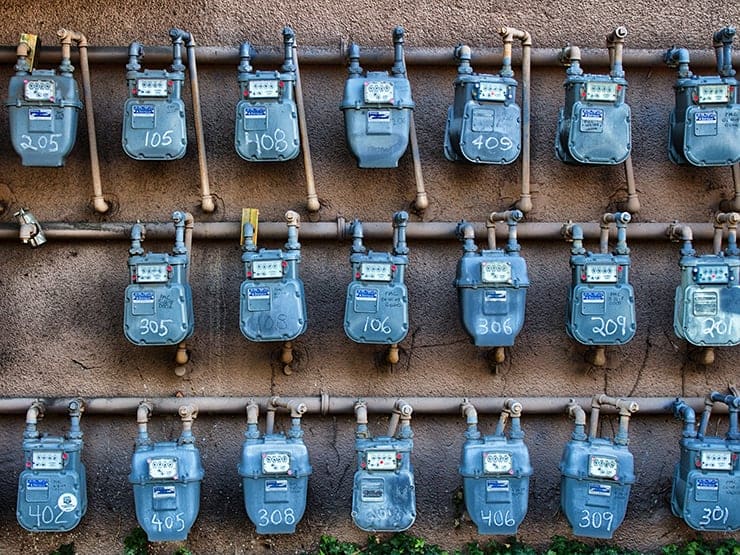Photo credit: Lance Anderson on Unsplash
How Much Does it Cost to Live the FIRE Life in Pittsburgh?
Hello, and welcome to interview #19 in the How Much Does it Cost to Live the FIRE Life interview series! Part interview, part spending report, this series will introduce us to FIRE* seekers from all over the world.
They’ll reveal their essential spending and money-saving tips—all to help us learn new ways to save on our own expenses. As a bonus, we’ll also get to discover the unique advantages and challenges of living in different places around the globe.
*FIRE stands for financial independence, retire early. It’s also known as FI—financial independence. For more info, see my FI School series—it’ll teach you everything you need to know about FI (and FIRE).
About the interview series
I created an intro page for this interview series to help explain what it’s about, what’s included (or not) and why. I’ll also link to all the interviews from the intro page—so check back there to see the entire collection.
Jump to the series intro: How Much Does it Cost to Live the FIRE Life? (The Interview Series)
Disclosure: These interviews may include affiliate links. That means I’ll receive a commission if you make a purchase through my links—at no extra cost to you. Thank you!
Interview #19: Vi from Pittsburgh
In today’s interview, we’ll meet Vi from the Happy Thrifty blog. Vi arrived in the US from Indonesia to study… and then ended up staying! She now lives in Pittsburgh, Pennsylvania with her husband.
Vi’s a software engineer turned data analyst by day, and a blogger and hobby musician by night. I love her music (it’s mellow and soothing). You can check out a sample track on her about page or all her songs on her SoundCloud account.
About Happy Thrifty
At Happy Thrifty, Vi writes about personal finance, productivity, personal growth, and more. I especially enjoy her posts about career development—it’s a topic that could use more attention in the FIRE community. Knowing how to pivot within a career or into a completely new one could save so many from the death march to FIRE.
I also love that Vi shares her story as an immigrant and a woman of colour. We need more diverse voices like hers in the FIRE community (which is one of the reasons why I started blogging myself). Learning from various people, from different places and backgrounds, helps us all to expand our knowledge and beliefs.
I hope you enjoy Vi’s interview below and her helpful advice at Happy Thrifty. (Also, don’t forget to check out her cool tunes!)
Table of Contents
Part 1
Part 2
Part 3
Part 4
Part 1: Getting to know you

After achieving FIRE, Vi would love to travel to Japan more often
Tell us about you and your husband
We just got married recently. I am working as a business intelligence data analyst and my husband, Josh, works in the finance industry. I came to the US several years ago to pursue a graduate degree and I am forever grateful for the opportunities I have.
I am in my early thirties, and my husband is in his late thirties. My hobbies include reading books, writing on my blog, and being immersed in music. After FIRE, I am hoping to take my music hobbies more seriously.
Where are you in your journey to FIRE?
If we combine our finances, we are probably close to FIRE. But I’d like to keep my finances separated from my husband. If I calculate my own journey, I am 70% of the way there. Technically, my husband has achieved his FI number but he decided to keep working. He has his own goals and wishes to finish his graduate school (paid by his employer).
It is worth noting that we calculated this number based on our current situation with no kids. If we decide to have a baby in the future (I am still not too sure at this point)—one of us will very likely return to work for a while.
My mom is also getting older. She has her social security and medicare benefits, but with the rising cost of healthcare in the US, my brother, sister and I will very likely need to chip in. My FIRE number does not take this into account, but if the situation has changed, I don’t mind at all coming back to work to help with her retirement.
What type of FIRE are you aiming for? (FIRE, Lean FIRE, or Fat FIRE*)
How Chrissy defines FIRE, Lean FIRE, and Fat FIRE
Some people define Lean FIRE as under $40k in annual spending; FIRE as $40–$100k in annual spending; and Fat FIRE as $100k+ in annual spending.
However, I prefer looser definitions that are not based on hard numbers. That’s because $100k could be Fat FIRE in a small Canadian town but Lean FIRE in San Francisco. That said, here are my definitions:
- Lean FIRE: The essentials with little or no discretionary spending.
- FIRE: The essentials plus a comfortable amount of discretionary spending.
- Fat FIRE: The essentials plus a luxurious amount of discretionary spending.
We will most likely aim for a standard FIRE with an extra cushion to travel once or twice a year. I am not a big spender myself—I can be happy staying inside for most of the day reading books or learning new skills 😊
Tell us about your living situation
We are renting a one-bedroom apartment (around 700 square feet) and it is located approximately 10 minutes away by car from the city. After COVID, we have our desks in the corner living room and it has been working great for both of us.
Pittsburgh’s transportation system is not the greatest, so we own three cars. We each have our own and I got another one for my mom. We realize this is not the most optimal solution for our finances but we love the flexibility of having our own cars.
Why did you choose to live in Pittsburgh?
We choose to live in Pittsburgh primarily because of our family and work. Our parents are getting older, and we’d like to stay near them as long as possible.
Things that I like about this city are the low cost of living and plenty of outdoor activities. But, winter here can be quite long and depressing. After they are gone, we are planning to move somewhere with a warmer climate, better public transportation and (hopefully) better healthcare system.
Part 2: The expenses
In this section, Vi shares her essential expenses and best money-saving tips. But before we get started, let’s review some important notes:
Important notes about the numbers
- Only essential expenses are included.
- Discretionary expenses (e.g. travel, gifts, etc.) are not included.
- Expenses are rounded to the nearest dollar.
- Expenses are displayed in the interviewee’s home currency.
- In this interview, the home currency is US dollars.
- For your convenience, I’ve included a currency converter for each expense.
For detailed explanations about which expenses are included (or not) see my How Much Does it Cost to Live the FIRE Life intro post.
1. How much does housing cost in Pittsburgh?

Rent ($800/month; $9,600/year) 
We are currently renting and most likely will continue to do so. At some point, we were considering buying a house. But after more research, we decided to keep renting and prioritizing our FI number. We both never had a huge desire to own a house and realize this is such a lifestyle decision that’ll probably set us back a couple of years.
Last year, the rental company was trying to raise the price and luckily, my husband was able to talk them into keeping the same price. I’m not too great when it comes to negotiating, so I’ll let him handle this type of situation.
Property tax ($0) 
We have no property tax since we are renting. If we owned a house in this area (which is considered in the city), we would pay property tax of 3%.
Strata/HOA fees ($0) 
Not applicable.
Home insurance ($0) 
Not applicable. We don’t own rental insurance currently, but it’s probably smart to have one. It is something we’ll be looking into.
Home maintenance ($0) 
This category includes: home maintenance, repairs, cleaning, and improvements; household goods and supplies; furniture; and appliances.
The nice thing about renting is if there are any issues in the apartment, you only need to notify the landlord. In our case, there is an online maintenance request we can submit and they always get back to us within 24 hours.
2. How much does transportation cost in Pittsburgh?

Vehicle loan ($0) 
Both of the cars I own are paid off. I bought my first car six years ago with a four year loan, and I paid it off within two years. I decided to pay it off because I had the money and my car interest was pretty high at 4.2%. Because I paid it off early, I saved about ~$1500 in interest. My second car, which I bought for my mom, was paid in cash.
Vehicle insurance ($161/month; $1,932/year) 
My husband and I currently have a separate insurance company. He is paying $79 for his car while I am paying $81 a month for mine and my mom’s. Because of a multi-car discount, adding my mom to the policy only increases the premium by $3 a month. This seems like a good deal but we still shop for a car insurance quote once in a while to make sure we don’t over pay.
For mine, I received discounts such as paid-in-full, paperless and passive anti-theft devices in addition to multi-car insurance. When getting a quote, I will look for a list of common car insurance online and double check with the agent to make sure I got as many applicable discounts as possible.
Actually, my rate was very expensive (more than $130 a month) before due to my relatively young age and a new car that I just purchased. But after a couple years, the rate is actually getting cheaper, and since I received large accident forgiveness rewards, I decided to stick with the same company.
Gas ($90/month; $1,080/year) 
Before purchasing my car, I researched my options thoroughly and decided to buy a new and fuel-efficient car. I purchased a honda fit several years ago and have been quite happy with it. Honestly, I did not want to buy a new car. But I had a horrible experience buying a used car back in college. Even though the price and insurance were significantly lower, the car had so many problems and I ended up spending thousands trying to fix the car.
Besides carpooling to work, we also join a gas station reward program (GetGo) to save money on gas and get a free car wash.
Vehicle maintenance ($74/month; $888/year) 
My husband understands some basic car maintenance tasks such as oil change and brake replacement. We saved a good amount of money by doing these tasks ourselves.
A few things that I do to save more on car maintenance:
- Look on Groupon or google “[services_name] coupon [city_name]”. Years ago, I was able to find a lifetime alignments coupon which I have used several times till today.
- I don’t change the oil more than I need to.
- Keep in mind there are car repair shops that might try to sell you things that are not unnecessary. Don’t be afraid to get a second opinion from another shop.
- DIY if you can and shop around for parts online. We found reasonably priced parts on rockauto.com.
Bike maintenance ($0) 
We have bikes but almost never used them. 😊
Parking and tolls ($148/month; $1,776/year) 
Before COVID, we carpooled to go to work to minimize parking costs. My company has a free parking spot, but the walk takes about 10 minutes. At my husband’s company lot, it costs $8 a day. So, we frequently switch who will take the car on that day.
After COVID, we spent $0 on the parking cost. I asked my manager a few times to continue WFH. Thankfully, he is on board with this idea. My husband will have a hybrid mode where he will work at the office twice a week.
Transit ($0) 
Pittsburgh’s transportation system is not the greatest, so we prefer to drive.
3. How much does food cost in Pittsburgh?

Groceries ($200/month; $2,400/year) 
We love cooking at home and preparing our meals. Also, we try not to eat meat too often and eat more vegetables.
A few things we do to save more on grocery bills:
- Shop at a cheaper grocery store such as Aldi and a few selected local Asian markets.
- Check my fridge before grocery shopping so I won’t buy things twice.
- Spread out grocery store trips to save time and money.
- Take advantage of credit card cashback and rewards.
- Sometimes, I’ll split grocery expenses with my mom for items that are too much to buy for a single person.
Eating out ($200/month; $2,400/year) 
Occasionally, we order take-out for convenience. I actually prefer eating at home but my husband loves eating out. We set a budget for $200 a month to eat out, which is quite plenty for both of us (or him 😊).
We try to avoid eating at dinner time since the price is more expensive which means more tax and tips to pay. If we go to dinner, usually there will be leftovers and we don’t mind taking them home for tomorrow’s breakfast or lunch. I personally love leftovers.
4. How much do utilities and bills cost in Pittsburgh?

Natural gas ($0) 
Not applicable (we only have electricity bills).
Electricity ($107/month; $1,284/year) 
Our highest monthly bill is usually in January or February, and the lowest is in the fall. For instance, this year we paid about $165 in February. Admittedly, we are not too great when it comes to saving on electricity. We will continue working on this.
Water ($0) 
Not applicable (our water bill is already included in the rent).
Garbage and recycling ($0) 
Not applicable (our trash bill is already included in the rent).
Internet ($25/month; $300/year) 
Luckily, we have a good relationship with our neighbor. We agreed to split our internet bill and share the internet connection. It is a win-win situation for both of us.
Home phone ($0) 
Not applicable.
Cell phone ($45/month; $540/year) 
Currently, we have a plan with Tello and are quite happy with the service. My husband used to pay over a hundred dollars a month for a postpaid plan and phone installment cost. Switching to a cheaper phone plan allows us to save at least $700 a year while still enjoying similar services.
Streaming entertainment ($10/month; $120/year) 
We have a Netflix subscription that costs about $10 a month.
5. How much do other essentials cost in Pittsburgh?

Life and disability insurance ($0) 
We have life and short-term disability insurance through our employer as part of our compensation package.
Medical insurance ($102/month; $1,224/year) 
When it comes to healthcare, the US is pretty terrible. Most people get health insurance through their employer and so do we. I have a plan that qualifies me to open a health savings account (HSA). With HSA, I get a triple tax break and can invest the money in the market.
We opted out of vision insurance because our company’s vision benefits are not great. It is also more cumbersome to find a pair of glasses (i.e. we have to drive to the providers and try the glasses) and deal with the paperwork. I can find good quality and affordable pairs of glasses online, such as on GlassesUSA and Zenni.
Out-of-pocket medical expenses ($30/month; $360/year) 
We are fortunate that we both are pretty healthy. We have not spent much on medical expenses in the past years. Occasionally, I’d visit a doctor virtually to save time and money (for non-critical conditions, of course). My favorite on-demand text-based app to visit a doctor is 98point6.com. I used it several times in the past and have been quite happy with the service.
Clothing and footwear ($30/month; $360/year) 
We do not spend much on clothing and footwear anymore. We have accumulated many clothes and shoes over the years. Occasionally we will buy shirts—but that might be a few times a year.
In the past, I used to like going to thrift stores and just buying a bunch of clothing and shoes. But these days, I try to be more mindful with my purchase and pick a few pieces that I really like.
Personal care ($15/month; $180/year) 
This category includes: haircuts, toiletries and grooming services and supplies.
Similarly, we have stashed a bunch of personal care items from past year purchases. In the past six months, we have not spent much on this category except toilet paper.
The funny thing is my husband’s mom also has a collection of personal items so there are always extra for us. In the future, we will use my health savings account for toiletries at retail pharmacies to avoid paying cash.
Technology ($25/month; $300/year) 
This category includes essential technology: software and hardware purchases, upgrades, maintenance, and repairs. Non-essentials (video games and consoles, e-readers, security cameras, etc.) aren’t included.
We are not planning to buy new tech devices any time soon. In the past, I’ve been guilty of this since I enjoyed buying tech gadgets. Although, when making a purchase I was still trying to save money by:
- Compare prices online (Amazon, eBay, etc.)
- Combining my husband’s student discount (if available), credit card rewards, and Rakuten to get more cashback.
I spent quite a good amount of money on piano online courses and subscriptions. I am happy paying for this since I enjoy playing musical instruments and hope to play piano in a church someday.
Part 3: Adding it all up
Now that we’ve detailed all of Vi’s essential expenses, it’s time to add everything up in some nice, organized tables!
Important notes about the numbers
- Only essential expenses are included.
- Discretionary expenses (e.g. travel, gifts, etc.) are not included.
- Expenses are rounded to the nearest dollar.
- Expenses are displayed in the interviewee’s home currency.
- In this interview, the home currency is US dollars.
- For your convenience, I’ve included a currency converter in each section. I hope you find it useful!
For detailed explanations about which expenses are included (or not) see my How Much Does it Cost to Live the FIRE Life intro post.
How much does it cost to live the FIRE life in Pittsburgh?
1. Housing
| Expense | Monthly (USD) | Annual (USD) |
|---|---|---|
| Rent | $800 | $9,600 |
| Property tax | $0 | $0 |
| Strata/HOA fees | $0 | $0 |
| Home insurance | $0 | $0 |
| Maintenance | $0 | $0 |
| TOTAL | $800 | $9,600 |
2. Transportation
| Expense | Monthly (USD) | Annual (USD) |
|---|---|---|
| Vehicle loan | $0 | $0 |
| Vehicle insurance | $161 | $1,932 |
| Gas | $90 | $1,080 |
| Vehicle maintenance | $74 | $888 |
| Bike maintenance | $0 | $0 |
| Parking and tolls | $148 | $1,776 |
| Transit | $0 | $0 |
| TOTAL | $473 | $5,676 |
3. Food
| Expense | Monthly (USD) | Annual (USD) |
|---|---|---|
| Groceries | $200 | $2,400 |
| Eating out | $200 | $2,400 |
| TOTAL | $400 | $4,800 |
4. Utilities and bills
| Expense | Monthly (USD) | Annual (USD) |
|---|---|---|
| Natural gas | $0 | $0 |
| Electricity | $107 | $1,284 |
| Water | $0 | $0 |
| Garbage and recycling | $0 | $0 |
| Internet | $25 | $300 |
| Home phone | $0 | $0 |
| Cell phones | $45 | $540 |
| Streaming entertainment | $10 | $120 |
| TOTAL | $187 | $2,244 |
5. Other essentials
| Expense | Monthly (USD) | Annual (USD) |
|---|---|---|
| Life and disability insurance | $0 | $0 |
| Medical insurance | $102 | $1,224 |
| Out-of-pocket medical expenses | $30 | $360 |
| Clothing and footwear | $30 | $360 |
| Personal care | $15 | $180 |
| Technology | $25 | $300 |
| TOTAL | $202 | $2,424 |
Grand totals
| Expense | Monthly (USD) | Annual (USD) |
|---|---|---|
| Housing | $800 | $9,600 |
| Transportation | $473 | $5,676 |
| Food | $400 | $4,800 |
| Utilities and bills | $187 | $2,244 |
| Other essentials | $202 | $2,424 |
| TOTAL | $2,062 | $24,744 |
Chrissy’s takeaways
Thanks again to Vi for sharing her expenses. She and her husband have done very well with keeping their essential spending low! Here are my takeaways:
Pittsburgh—a cost of living sweet spot?
When I write the takeaways for these interviews, I usually research the city or town my interviewee is from. In looking up stats for Pittsburgh, I was surprised to find every expense category is right around the US average. (However, Pittsburgh’s cost of housing stands out—it’s 38% lower than the US average!)
Pittsburgh sure looks to be a sweet spot as far as the cost of living! Nothing is excessively costly, housing (the biggest factor in cost of living) is cheap, and income is close to the US average. I think Vi, her husband, and their families chose a great place to settle down!
Renting for the win (again)
Look at all the zeros in Vi’s housing costs: $0 for property tax, HOA fees, home insurance, maintenance, water, garbage, and recycling. She gets all of this for the low monthly price of $800 USD ($1,000 CAD)!
In addition, renting saves Vi and her husband time and allows them to live a lower-stress lifestyle. This freed-up time can then be put to better use—they can use it to earn more income, learn new skills, or simply relax.
If you can find affordable rent and are willing to live in a smaller place, it can help a lot—in multiple ways—to get you ahead.
FI gives you options
Vi is only in her early thirties, yet she’s already 70% of the way to FIRE! Achieving this level of financial stability has given her the freedom to:
- Continuously pivot in her career to gain more satisfaction and happiness.
- Be free of money worries as she makes these changes.
- Purchase and insure a car (in cash!) for her mom.
- Consider supporting her mom as she ages.
As I often say, the freedom that FI provides starts long before reaching full FI. Vi’s story is a perfect example of this. FI allows her to make choices that are true to her values and bring her happiness and meaning. Gaining the financial security to live a life of your choosing is what FI’s truly about.
Closing thoughts
I found it hard to pick out one or two key things Vi and her husband are doing ‘right’. That’s because they’re doing a great job in every area. Each expense has been optimized and thoughtfully considered—no single expense needs to be drastically cut.
If you’re having a hard time finding big savings in one or two areas, do as Vi and her husband have done. Try making less-drastic cuts everywhere instead!
Related: For ideas on ways to save more money, see FI School Lesson 2 and this mega-post I wrote.
I look forward to continuing to follow Vi’s FIRE journey. She and her husband are doing all the right things and are well on their way. Congrats on all you’ve worked so hard to achieve, Vi!
Connect with Vi
If you’d like to learn more about Vi or read more of her content, visit her at her blog, Happy Thrifty. You can also connect with her on Twitter and Instagram.
Share your thoughts
Were you surprised by Vi’s essential expenses? Are any of them significantly different from where you live? Share your thoughts in the comments, along with your own money-saving tips!
Hi FI-ing Auntie lives in Singapore—the world’s most expensive city. And yet, she spends less than you’d think! Check out her interview to learn how she does it.
Nadia and her husband live in North Vancouver, BC—one of Vancouver’s most beautiful (and expensive) suburbs. And yet, they’ve found ways to keep their essential spending very low!
Visit the intro page to learn more about the what and why behind the series and access the complete list of interviews.
Support this blog
If you liked this article and want more content like this, please support this blog by sharing it! Not only does it help spread the FIRE, but it lets me know what content you find most useful. (Which encourages me to write more of it!)
You can also support this blog by visiting my recommendations page and purchasing through the links. Note that not every link is an affiliate link—some are just favourite products and services that I want to share. 🙂
As always, however you show your support for this blog—THANK YOU!








12 Comments
Court @ Modern FImily
October 13, 2021 at 7:29 amAwesome interview Vi! Love all the links you’ve provided for low cost options out there. We like using Eye Buy Direct for our prescription glasses. I think something to highlight is making little switches such as rx glasses online vs in store can easily save you hundreds per year. Multiply that for every category you can and you’re now talking thousands in savings each year. But the kicker is you’re still getting everything you were planning on purchasing, just at a fraction of the cost. Meaning, NO DEPRIVATION along the way. Instead it becomes more of an optimization/hacking game.
Not sure if I could live through Pittsburgh’s dreary winters lol but that cost of living sure is nice! Smart to earn and invest in a LOC area with plans to move elsewhere once it makes sense.
Great job Vi and looking forward to having you share more of your story/thoughts on our FIRE Interview Series too 🙂
Vi
October 14, 2021 at 7:19 amI have good experience with eye buy direct too – I got a pair of eyeglasses for $25 with pretty good quality last year 🙂 Yes – I don’t think being on FIRE means that we have to be deprived at all! It’s all about balancing our future and present happiness. I’m actually so glad to learn about FIRE, knowing there is an option to not give up our golden years for the corporate world!
I know – I hate winters too! I’ll definitely consider the warmer side of Canada as an option. Hopefully, I won’t be too old by then and still have a good chance to apply for a PR 🙂
Yes, I can’t wait to be on the interview series, Court! Thank you so much for the encouraging and positive words 🙂
Chrissy
October 14, 2021 at 4:19 pmHi Vi—Court lives in a pretty amazing part of Canada. The winters are cold, but they’re not grey and wet like Vancouver’s! The cost of living in her town is low and, even better, there’s quite an active, large FIRE community there! That may be worth considering one day. 🙂
Thanks again for doing this interview with me and for your patience will all my clarifying questions!
Chrissy
October 14, 2021 at 4:15 pmHi Court—I love the way you put it, that by saving hundreds in multiple categories, it’s pure savings with ZERO deprivation. I also see optimization as a game (which is one of the reasons why you and I get along so well, ha ha).
I guess you’re right about Pittsburgh. That low cost of living comes at a price—in the form of long, cold winters! I look forward to checking out Vi’s interview on your blog as well. 🙂
Teresa
October 15, 2021 at 7:16 pmAll I can say is “WOW”! $800/month (cdn$1000) is half of the current rental rate in Vancouver for a 1 bedroom – it was just on the local news today that rents have gone up since the softening of rates due to Covid in 2020! I suggest that you seriously consider buying Tenant insurance which is relatively inexpensive. When I was a realtor, I witnessed horror stories about tenant having to cough up thousands if they inadvertently cause any damage like a leak or overflowing the bathtub. I do not know that rental situation you are in but just be cautious. The grocery bill of $200.00 is really amazing…. I wish we had an Aldi or 99cents store here in Vancouver. I shop at those in California and Arizona when we used to spend several weeks in the winter down there. I love seeing young people so hardworking and careful about spending carefully so that they can become FI at an early age!
Chrissy
October 16, 2021 at 3:51 pmHi Mom—it’s always nice to hear your thoughts on these interviews as you bring a unique perspective. I’m also amazed by Vi’s extremely low rent. It’s definitely not worth buying at that price! As for getting tenant’s insurance, you’re right that it’s worth getting, particularly since it’s so affordable. (I think it’s under $200/year through Square One Insurance here in Canada.)
I hope Kid 1 and Kid 2 will likewise be as money-savvy and frugal as Vi and her husband one day!
Maria @ Handful of Thoughts
October 17, 2021 at 8:07 pmRenting definitely for the financial win on this one. One downside to renting is the unpredictability of the landlord but I guess if you’re in an apartment it’s more stable. We’ve had lots of tenants apply to our properties because their landlord was selling their current place for various reasons. With an apartment or condo it will always be a rental of some sort to that’s reassuring.
I agree that it’s worth looking into getting tenant insurance. The cost is usually very affordable and it protects your from so many things.
Chrissy
October 18, 2021 at 8:04 pmHi Maria—I love getting your take on rentals from a landlord’s point of view. I never realized how many rental turnovers occur in the single family home market. That unpredictability is why I’ve always felt uncomfortable about renting with kids, especially once they’re settled into their school community. You’re probably right that apartment rentals tend to be more stable. Thanks so much for coming by to share your thoughts!
AnotherLoonie
October 17, 2021 at 9:43 pmThese posts are so great for blowing minds of our fellow Canadians. For many of us, life is just so much more affordable down in the U.S. On top of that, if you have a good job, your employer health insurance will give you far better quality of care than what’s available up here.
It makes you think, so many of our parents took on risk and sacrificed to move to Canada for a better life. Should we be taking the same action to move down to the U.S.?.. If you’re relatively young and not a yet a homeowner, I think the answer is clear.
Chrissy
October 18, 2021 at 8:13 pmHi AL—this is such a unique take on how the US compares to Canada. I love it! You’re absolutely right, though. In Canada, it doesn’t seem as easy (or even possible) to find cost of living sweet spots like Pittsburgh. And, I never considered that angle on American healthcare, that you can access higher quality care than we do in Canada.
I like how you flipped the script on the US versus Canada discussion. It’s more often that we hear about Americans wanting to move up here for the universal healthcare and cheaper universities. However, as you’ve pointed out, there are definitely benefits to living south of the border. Thanks for the thought-provoking comment!
Teresa
October 19, 2021 at 10:58 amHere are my two-bits for what it is worth. Rental of an apartment is only a bit more secure if the building is a rental building. If it is a unit is in a strata (our term for a building or townhouse with individual owners holding title to each unit), it is still not secure. When I was a realtor, I always felt so bad for the tenants when one of my clients had to sell their investment property. For us baby boomers, we always believed in buying our own home and pay it off as quickly as possible – no one can ever take it away from us – it is soooo ingrained that it is hard to think of renting, but then I am opening up my mind a bit (trying very hard) so who knows. As for better healthcare in the US, check the monthly cost first – we have cousins that are paying over $500/month for coverage because they are in their 70s . We have a family member who is a specialist that was offered a residency at Harvard and postings all over the US with all the salary and perks that are unheard of in BC. The reason he declined was because before he can see a new patient, the patient has to meet with the accountant first and that is not why he got into medicine. He chose to practice in Vancouver where he feels is a safer environment for his family and he wants to treat Canadians.
Chrissy
October 19, 2021 at 11:42 amHi Mom—wow, that’s an action-packed and very informative comment! I appreciate your thoughts on rentals, from your realtor point of view. I think if you’re a flexible person, have minimal belongings, and (ideally) are child-free, it’s less scary to be beholden to the whims of your landlord. I’m none of those things, ha ha. So, for me, as expensive as home ownership is in Vancouver, it’s worth it to own rather than rent.
I know that most people in your generation have the same mindset when it comes to owning your home. But come to think of it, it doesn’t matter which generation we’re talking about. Most people feel far more secure with their homes paid off as soon as possible. I think it’s so important to know and honour your psychological needs when it comes to money. If this is what allows you to sleep at night, it doesn’t matter what others do or advise. You have to feel comfortable with your money decisions!
As for your story about the specialist, that’s very eye-opening. I can imagine how off-putting it would be to have to “means test” your patients before you can even see them. That would leave a bad taste in my mouth, whether I was the doctor or patient. Our system in Canada certainly isn’t perfect, but there are definite advantages. Thanks so much for sharing!